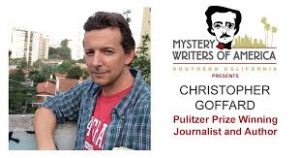Current Comparative Literature Conference
CFP: 58th Annual Comparative World Literature Conference
Writers of Extreme Situations: A Multidisciplinary Perspective
Venue: California State University, Long Beach. Hybrid
Dates: Tuesday and Wednesday, April 16-17 (in-person presentations only with Zoom projections), Thursday, April 18, 2024 (Zoom presentations only)
Plenary Speaker: Christopher Goffard, author and senior staff writer, Los Angeles Times
Family crises, exilic conditions, forced migrations, excessive poverty, armed conflicts, political warfare, environmental calamities, workers’ exploitation, pandemics, and all manner of natural or man-made disasters have been rising to unprecedented levels over the last decades. How are extreme situations or situations so extraordinary as to defy imagination represented? What are the poetics underlying them?
We welcome conversations about how extreme conditions and situations, (individual, collective, or global) are expressed, analyzed, and engaged from a multidisciplinary perspective, including but not limited to: Literature, Journalism, Geography, Anthropology, Political Science, Criminology, Linguistics, Ethnic Studies, Women and Gender Studies, Disability Studies, Media Studies, Geology, Human Development, and more.
This conference invites paper and panel proposals on all aspects of extreme situations. Possible topics can include but are not limited to:
-Literature of extreme situations
-Investigative Journalism
-Trauma literature
-Literatures of genocide
-Holocaust memoirs
-Feats of survival
-Crime narratives
-Narratives of addiction
-Natural and man-made disasters
-Innocent Project LA
-Victims speak up: truth to power
-The rise against femicide
-Wars and exilic narratives
-Refugee narratives
-Pandemic narratives
-Medical malpractice and botched surgeries
-Ethics of survival and survivors’ guilt
-The Family Secret and the wounded individual
-Dementia and violence: nursing homes
-Perpetrators and victims
-Asylum seekers and their fate in the US
-Ethical ordeals: surviving the unimaginable
-Memory as a repository of horror
-Collapse of ethical systems in a digital world
-Institutional responses to catastrophes
-Crossing the Mediterranean: the Syrian refugee crisis
-Extreme geo-political conflicts
-Journalism at work: covering extreme conditions
-“The Banality of Evil” in urban settings.
-State terrorism and extreme-isms
-Millennial fatigue and extremist stances
-Monuments of shame
-The Kafkaesque in our daily lives
-Systemic risks in the 21st Century
-Extreme environments
-Soft White Underbelly: Mark Laita interviews
–The Trials of Frank Carson Podcast (Christopher Goffard)
-Deaths in the Grand Canyon and Other National Parks.
We are thrilled to announce that the plenary talk will be delivered by Christopher Goffard, Pulitzer Prize winner, journalist for the LA Times, novelist and podcaster, on Wednesday, April 17th, at 2PM (PDT). The title of his talk is:
“Crossing the Impossible Bridge in a Dynamite Truck: Observations on Film, Friendship and Collaboration”
In “Crossing the Impossible Bridge in a Dynamite Truck,” Goffard will reflect on his friendship and collaboration with one of cinema’s great poets of desperation and obsession, William Friedkin, and of their efforts to bring some of Goffard’s riskier stories to the screen. As a crystallization of Friedkin’s danger-courting artistry—and as a metaphor for their quest to get controversial projects made— Goffard invokes an image from the filmmaker’s 1977 masterpiece Sorcerer, in which a truck laden with nitroglycerin attempts to cross a crumbling suspension bridge in the South American jungle.
Submissions for individual presentations and 90-minute sessions are welcome from all disciplines and global / historical contexts that engage with historical, personal, or social instances of extreme conditions and situations.
Proposals for 15-20 minute presentations should clearly explain the relationship of the paper to the conference theme, describe the evidence to be examined, and offer tentative conclusions. Abstracts of no more than 300 words (not including optional bibliography) should be submitted by March 1, 2024. Please submit abstracts as a Word document in an email attachment to comparativeworldliterature@gmail.com
NB: Please do not embed proposals in the text of the email. Make sure to indicate your mode of preference (Zoom on April 18 and in person only on April 16 and 17) for planning purposes
While the conference will be hybrid, all Zoom presentations will take place only on Thursday, April 18, and in-person presentations will take place on Tuesday-Wednesday, April 16-17 (and will be Zoom-projected). We cannot accommodate pre-recorded presentations.
The conference committee will review all proposals, with accepted papers receiving notification by March 15, 2024.

